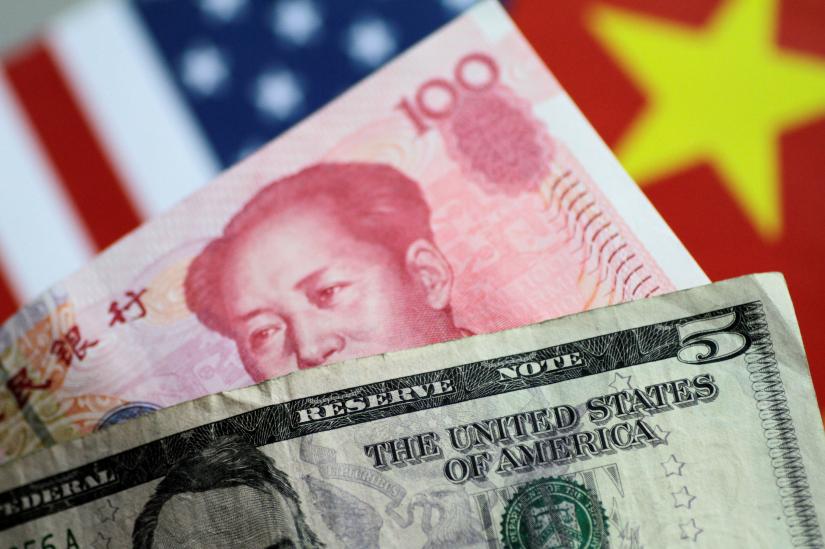 The US Treasury issued another stern warning to China for a slide in the value of the Chinese currency Yuan, but stayed away from labeling it a currency manipulator.
The US Treasury issued another stern warning to China for a slide in the value of the Chinese currency Yuan, but stayed away from labeling it a currency manipulator.
It was widely feared that the Treasury's bi-annual report to the Congress on Wednesday may put China on the manipulator list, leading to further escalation of trade tensions between the world's two largest economies.
"Of particular concern are China’s lack of currency transparency and the recent weakness in its currency. These pose major challenges to achieving fairer and more balanced trade, and we will continue to monitor and review China’s currency practices," said Treasury Secretary Steven T Mnuchin in a statement issued along with the report to the Congress.
President Trump has repeatedly accused China of manipulating its currency and called for tougher US policies to counter the move. His Treasury Department, however, did not find enough evidence to do so.
Under the criteria established by the US Congress, a trading partner can be labelled a currency manipulator if it has a minimum $20 billion trade surplus with the US and there's evidence of repeated intervention in currency markets.
The Treasury report estimates that direct intervention by the People’s Bank of China this year has been limited. However, recent depreciation of the renminbi, China's official currency, will likely exacerbate China’s large bilateral trade surplus with the United States.
Treasury found that along with China, five of its other major trading partners continue to warrant placement on the “Monitoring List” of major trading partners that merit close attention to their currency practices: Germany, India, Japan, Korea, and Switzerland. The list is similar to the one released by the treasury in April and the next report will be released in 2019.
While President Trump claims to have a "great friendship" with Chinese President Xi Jinping, the relations between the two countries have sunk since early this year. Both have slapped millions of dollars of tariffs on each other.
Economists have pointed that the US tariffs, particularly on steel and aluminium, have had an adverse impact on investments. China has slapped tariffs on US crop prices, forcing US firms to diversify the set of countries with which they trade.
The ongoing trade war is likely to harm the interests of emerging economies like Bangladesh in the long run as their currency may be adversely impacted against the US dollar. In the short run, however, it has been considered beneficial because of fall in prices of crops like soybean leading to cheaper imports.
 International
International
41361 hour(s) 58 minute(s) ago ;
Morning 04:53 ; Sunday ; Jul 06, 2025
US declines to label China a currency manipulator
Send
Brajesh Upadhyay, Washington
Published : 22:07, Oct 18, 2018 | Updated : 22:12, Oct 18, 2018
Published : 22:07, Oct 18, 2018 | Updated : 22:12, Oct 18, 2018
0 ...0 ...
/hb/
Topics: Top Stories
- KOICA donates medical supplies to BSMMU
- 5 more flights to take back British nationals to London
- Covid19: Rajarbagh, Mohammadpur worst affected
- Momen joins UN solidarity song over COVID-19 combat
- Covid-19: OIC to hold special meeting
- WFP begins food distribution in Cox’s Bazar
- WFP begins food distribution in Cox’s Bazar
- 290 return home to Australia
- Third charter flight for US citizens to return home
- Dhaka proposes to postpone D8 Summit
Unauthorized use of news, image, information, etc published by Bangla Tribune is punishable by copyright law. Appropriate legal steps will be taken by the management against any person or body that infringes those laws.
Bangla Tribune is one of the most revered online newspapers in Bangladesh, due to its reputation of neutral coverage and incisive analysis.
F R Tower, 8/C Panthapath, Shukrabad, Dhaka-1207 | Phone: 58151324; 58151326, Fax: 58151329 | Mob: 01730794527, 01730794528


